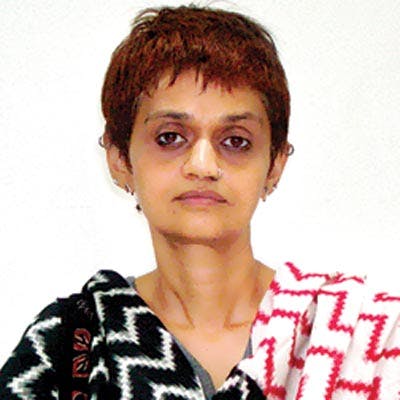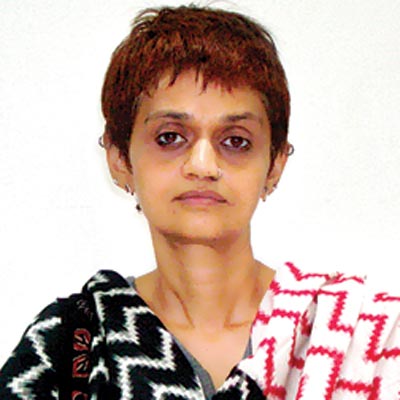Sharmila Rege passes away
Jan 21, 2015
First story


JULY 14 2013
ADIEU SHARMILA REGE
Director of Krantijyoti Savitribai Phule Women Centre, Sharmila Rege (48) passed away on Saturday afternoon after suffering from brief illness.
Rege started a creche at University of Pune (UoP) and worked extensively toward empowerment of dalit women. Rege also worked on spreading awareness about gender equality in society.
Head of sociology department in varsity Rege was one of the founder members of the study centre. She was born in 1964 and had done her doctoral thesis in social science.
Sharmila Rege (7 October 1964 – 13 July 2013)[1] was an Indian sociologist, feminist scholar and author of Writing Caste, Writing Gender.[2] She led the Krantijyoti Savitribai Phule Women's Studies Centre, (the department of Gender Studies) at University of Pune which position she occupied since 1991.[3] She received the Malcolm Adiseshiah award for distinguished contribution to development studies from the Madras Institute of Development Studies (MIDS) in 2006.[4]
Rege was one of the leading feminist scholars in India, whose work in developing a 'Dalit Standpoint Perspective'[5] has been crucial in opening up feminist debates in India to questions of class, caste, religion and sexuality. Rege's work within the academia, to fight for the right of the Dalit student's rights, has been a testimony of her commitment to critical educational reform in India[6] Her concerns around the woman's question in India, contributed greatly to new and alternative methods of historiography, exposing the blind-spots of a Hindu Nation towards the Dalit voices and perspectives that have often been neglected in the political milieu of India's history. Her emphasis on relocating B.R. Ambedkar's central role in the shaping of the modern nation state has ensured that the voice from the margins does not remain invisible opens up space for political contestation and dialogue in a public debate that is quickly being gentrified by the rhetoric of economic development and globalisation.[7] In her last published work, "Against the Madness of Manu" [8], she sought to centralise Ambedkar's role in the women's movement by invoking his ideological fight against Brahminical patriarchy, and how the caste system engenders graded violence against women. Her particular focus on alternative history writing has given new life to the local and oral traditions of knowledge and cultural practice, by bringing them into public attention through translation projects that build archives of national memory.[9]
After a brief struggle with colon cancer, she died on 13 July 2013.




